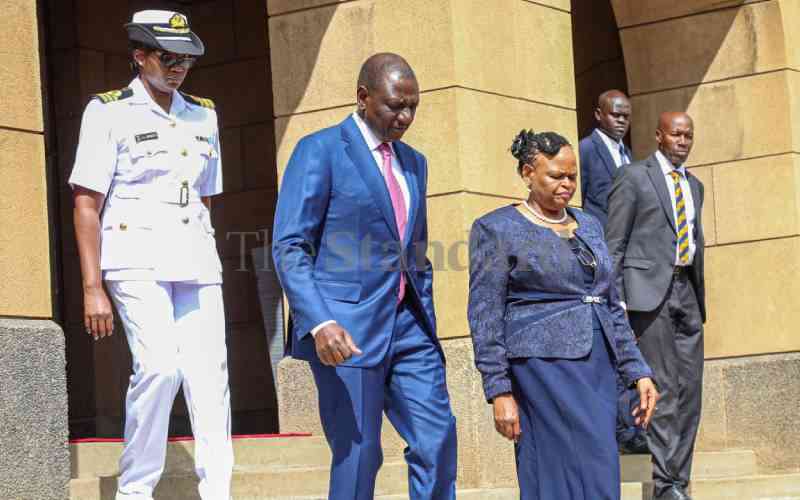×
The Standard e-Paper
Stay Informed, Even Offline

President William Ruto yesterday implicitly addressed the removal of his former deputy, Rigathi Gachagua, and expressed concerns about the Judiciary's perceived interference in government initiatives.
Ruto urged the Judiciary to exercise restraint, arguing that judicial actions should support the country's shift towards issue-based politics rather than ethnic or personality-driven agendas.







